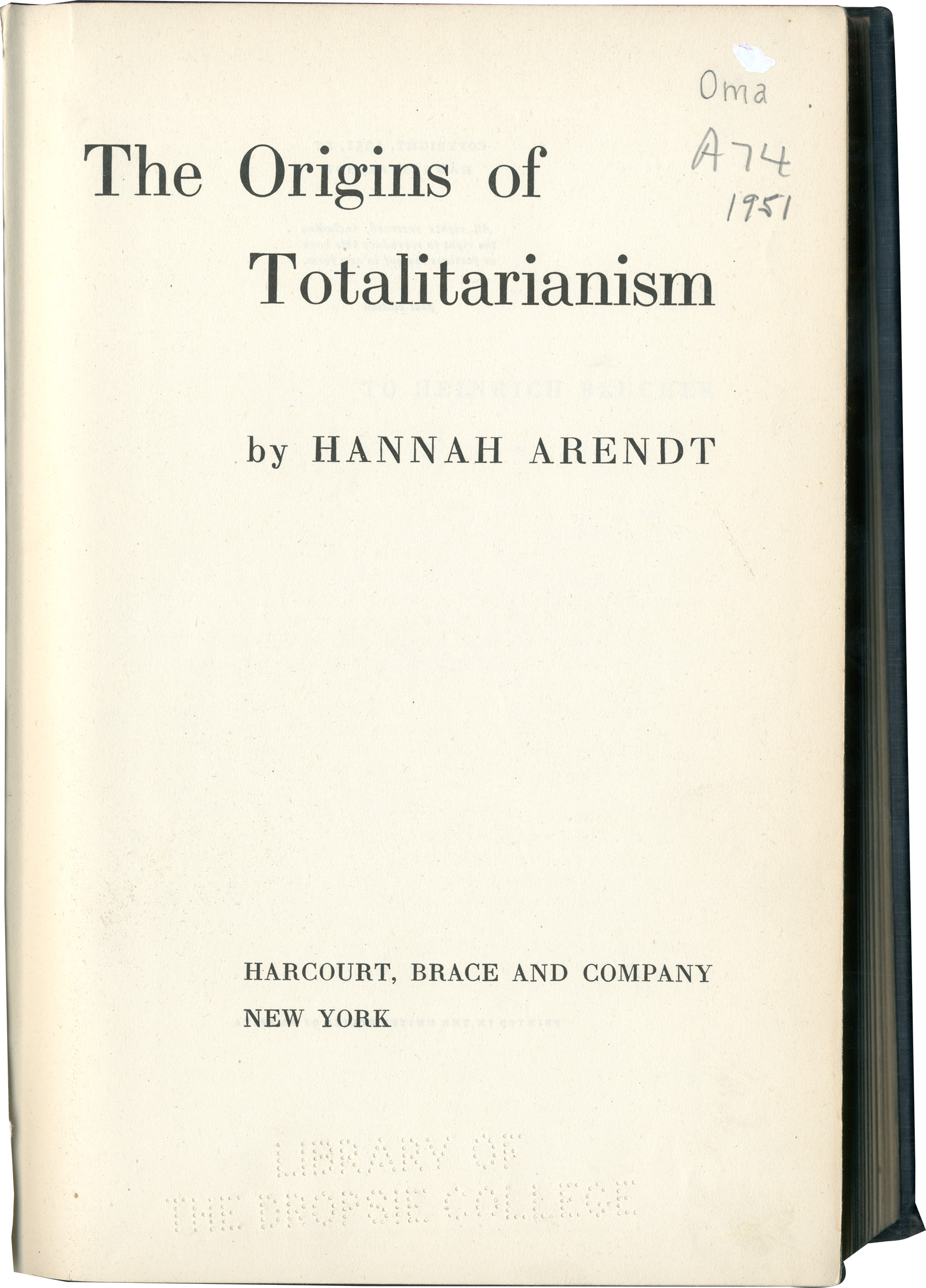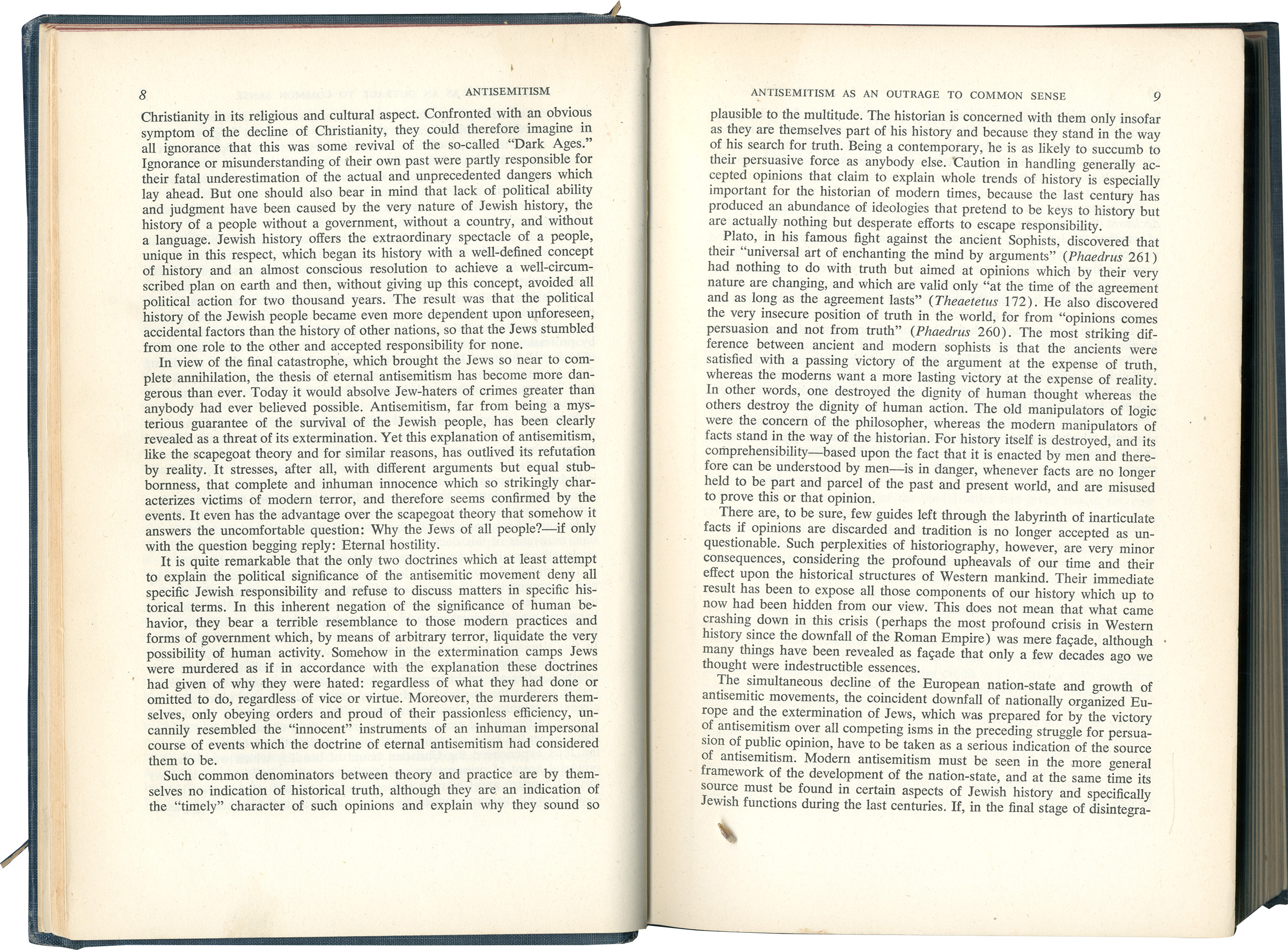At a time when contemporary political developments have been attracting new readers to Hannah Arendt’s Origins of Totalitarianism, it is worth revisiting Arendt’s argument in the book’s first volume, which looks to aspects of Jewish history—namely, relations between Jews and the societies and states amid which they lived—to explain the role that antisemitism came to play in mid-twentieth-century totalitarianism. In doing so, it makes several claims that have been contested fiercely by scholars of Jewish political history. Among these is the assertion that the Jewish people “began its history with a well-defined concept of history and an almost conscious resolution to achieve a well-circumscribed plan on earth and then, without giving up this concept, avoided all political action for two thousand years” (p. 8).
Arendt’s critics have interpreted this claim as a charge of “Jewish passivity” in the face of political exigencies and produced evidence to refute it. However, a careful reading of the “Antisemitism” volume, reinforced by many of Arendt’s other writings, shows that what was actually at stake for Arendt—and for Jewish politics—was something else. The avoidance of political action is hardly unique to the Jews, in Arendt’s eyes; it similarly characterizes the more than two thousand years since the first, Greek political philosophers “wished to turn against politics and against action” to secure certainties politics cannot provide (Arendt, The Human Condition, p. 195). The tendency to avoid and displace politics is a constant theme in Arendt’s writings. What Arendt critically narrates in the first volume of The Origins of Totalitarianism is a history of Jews (not all Jews, but certain Jewish elites who played an outsized role in relations between Jews and non-Jews) actively pursuing a strategy of vertical alliances that had the effect, in the short and longer term, of shielding Jews from political encounter with their non-Jewish neighbors. These alliances shored up patterns of rule (by Jewish “notables”) and exception (see Origins, pp. 62-64), that, as Arendt argues throughout her work, are often mistaken for politics but are actually at odds with it, patterns that easily become institutionalized and serve to benefit some at the expense of many others, and of politics as such.
Arendt’s argument, here and elsewhere, is that the avoidance of politics has ultimately proven and will continue to prove catastrophic. Politics requires continuing encounter and the ability to act together with—and where necessary, against—others different than ourselves, on the basis of judgments that can only be made where such encounter across lines of difference occurs. As Arendt’s Origins of Totalitarianismshows, it is the very possibility of this kind of political encounter that totalitarianism destroys, and it is this possibility that must be reconstituted if there is to be politics in totalitarianism’s wake. It is an argument that is just as relevant now as it was in 1951, including for the project of rethinking and expanding Jewish political thought.
Short name for this entry
Origins

